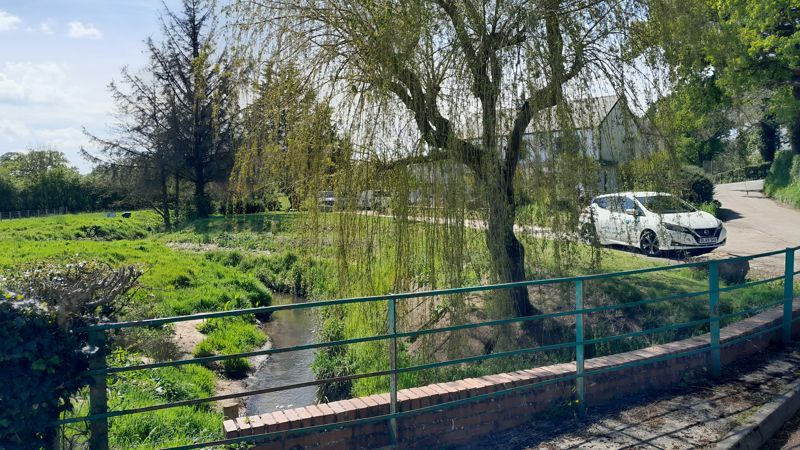NRW enforcement reduces flood risk in North East Wales

Successful enforcement action undertaken by Natural Resources Wales (NRW) for unpermitted works in North East Wales have led to reduced flood risk and limited the potential for detrimental impacts on the local environment.
NRW’s Development and Flood Risk team recently concluded a series of successful enforcement actions against unpermitted activities at several sites across the region.
Pollution prevention advice, warning letters and remediation notices have been given to a range of landowners to remediate the impacts of detrimental, unpermitted works which had the potential to increase flood risk or cause environmental harm.
NRW officers were alerted to the construction of an unpermitted earth bund within the floodplain of the River Alyn at Llong in Flintshire. Whilst this was initially designed to reduce flood risk to the landowner’s bank, it could have altered flood flows in the floodplain and lead to increased flood risk on the opposite bank. Despite initial discussions, the landowner did not reduce the bund’s level, leading to a remediation notice. The landowner eventually lowered the bund by 600 mm, reducing potential flood risks. A warning letter was also issued.
In Ruthin, NRW addressed dredging of the River Alyn at Plas Yn Rhal, which occurred at a time when in-river works wasn’t allowed. This risked harmful geomorphological effects and increased flood risk in the area. Remediation steps included the return of dredged sediment and the introduction of fencing and soft revetments to stabilise the banks.
At Bridge House in Wrexham, unpermitted gabion installations that were meant to halt riverbank erosion on Halghton Mill Brook actually increased erosion and flood risks. Following a remediation notice, the gabions were removed, and the bank was restored with native vegetation to enhance stability.
In Prestatyn, a landowner installed twin culverts on the Nant Hall Drain which were too small and without the required permissions. The landowner was issued with pollution prevention advice and guidance and a warning letter, and the crossing was eventually removed. They were also advised to apply for a flood risk activity permit (FRAP) to install a new access crossing over the river.
These four cases are part of 90 ongoing enforcement actions with the number continuing to rise.
Keith Ivens, NRW Operations Manager, Flood and Water Management, said:
“Effective flood risk management is crucial for reducing flood risk for our communities and the environment. The activity undertaken by the landowners in these cases were completed without the necessary flood risk activity permits. The range of enforcement actions used demonstrate our commitment to ensuring compliance with flood risk regulations and safeguarding our natural resources.
“By addressing unpermitted flood risk activities, we can help reduce future flood risk and enhance the region’s ability to adapt and mitigate against future climate impacts. This is vital for ensuring the long-term health of our waterways and the security of our flood defences.”
